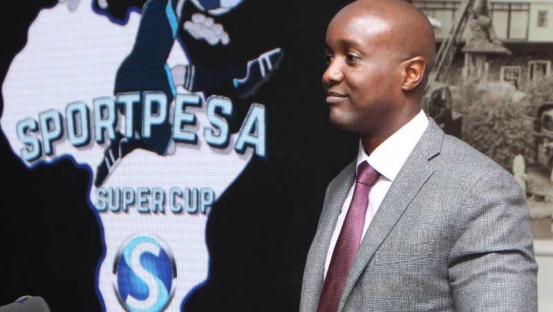×
The Standard e-Paper
Join Thousands Daily

SportPesa CEO Ronald Karauri at a recent event in Nairobi. [Photo: Jonah Onyango, Standard]
In the last four years, the sector has been the fastest growing on taxes, growing 39 times from Sh120 million in 2014, to contribute Sh4.7 billion last year.